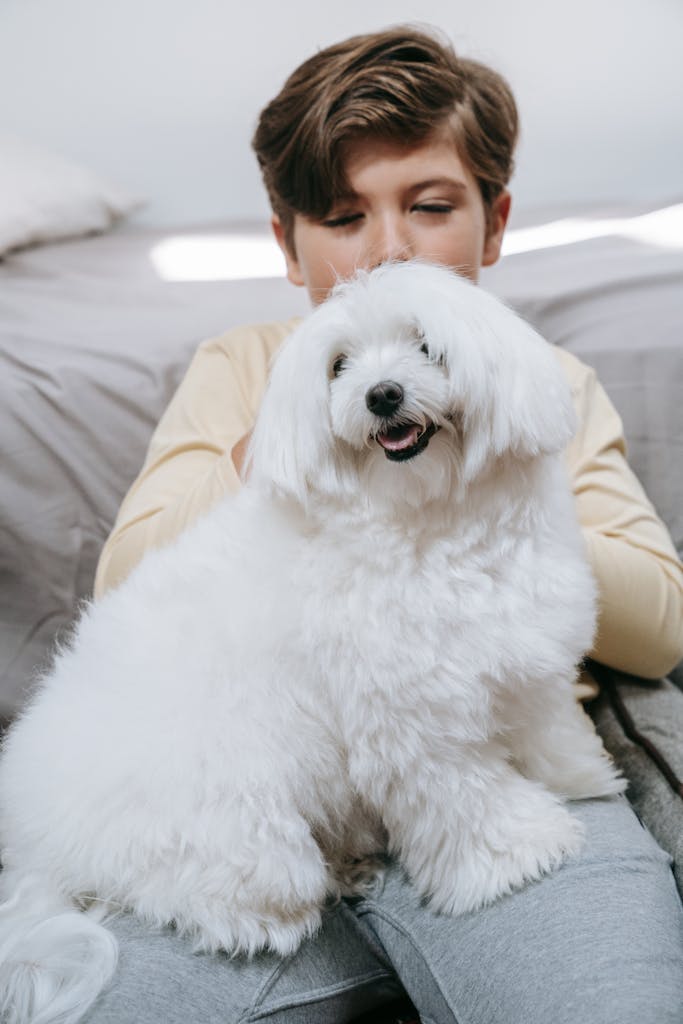By Kay Bradnum
One thing we notice on posts here and on other groups too, is the same phrases cropping up over and over:
- “He’s perfect except for ….”
- “How can I nip this in the bud?”
- “We love him lots, but we can’t have him doing this”
Now some of these of course really do need to be sorted. A dog who is toileting in the house needs to be taught where the toilet really is. A dog who is biting the children can’t be allowed to bite the children.
But there are two clear categories for me, and two clear ways to deal with them:
1. Biting, toileting etc.
Yes, these issues need to be dealt with. But can I ask everyone to start from the other direction? Not “how can I make him stop doing this?”, but “what do I need to do, to help him not need to do this?” Not “How can I nip this in the bud” but “How can I help him understand he has nothing to worry about?” Stop thinking about your dog as being stubborn, or a jerk, or needing “sorting out”. Start looking at your own behaviour and the environment and see what you can change to support your dog.
Of course he mustn’t bite a child, but you can help by using stair gates, pens etc and then helping the dog to learn there’s nothing to be afraid of – and making sure your child can’t reach the dog to give him something to be afraid of.
Of course he needs to toilet outside, but he won’t understand that without help. Leaving the door open isn’t helping. Taking him outside regularly and letting him know he’s got it right helps. Preventing access to places he’s been going inside helps. Cleaning that area thoroughly to remove the smell helps. Giving him bells to ring doesn’t help – even after he’s been taught what they mean, they don’t help when you aren’t there to respond.
Of course you can’t have him barking and destroying the house all day long. Crating him won’t help him. Leaving him with a jumper (when the whole house smells of you) doesn’t help him. Changing your lifestyle to support him while he learns to cope with being alone will help.
All of the above, and many more scenarios, are in our guides with advice on how to help your dog. Just remember, they aren’t quick fixes to force your dog to fit with your lifestyle. They are advice and support to help your dog be the best he can be, and that includes his happiness too.

2. Now to the other “he’s perfect except for” types of post.
Does it really matter if puppy widdles with excitement when you come home? Can you accept he’s a baby and will gain bladder control soon? He just needs a towel by the door and a smile so he doesn’t become nervous to even welcome you home.
Does it really matter if your dog barges up to you on the sofa, plonks his huge backside on your knee and demands a cuddle? Can’t that just be his clumsy way of telling you he loves you?
Does it really matter if he barks his head off for 40 seconds as you come home, or in some other scenario? He’s just being a dog and telling you his feelings in the only way he knows how. (One of mine shouts at the top of his voice, every bedtime, to tell the whole street / world that he’s been a clever boy, done his bedtime wee and he’s going to get a biscuit now. I think it’s really cute).
Does it really matter if he doesn’t like Uncle Sid? We don’t like everyone we meet and when Uncle Sid visits, he can have a juicy bone in another room. No need to force the issue for an occasional visitor. In fact if he doesn’t like visitors generally, how many does he really need to meet?
What I’m really trying to say in both scenarios is: let’s look at things from the dog’s point of view. We aren’t perfect, and we shouldn’t expect perfection from our dogs. Many things we expect from them are outside of their control, so it’s our job to help them learn what we want. And if they aren’t *quite* perfect, let’s celebrate their individuality!
All this doesn’t mean, of course, that we won’t help you with the smaller problems you may have with your dog. Just that the approach we take to the problem may not be what you were expecting.
Ask not what your dog can do for you. Ask what you can do for your dog.

